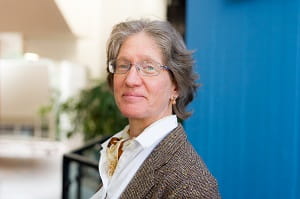Wondering where a masters in economics will take you? Professor Kate Rockett, a leading economist and lecturer in the Department of Economics at the University of Essex discusses the career path for postgraduates in economics.
"A masters degree in economics will equip you with a strong foundation in analytical thinking. You'll gain a brilliant insight into economic theory and data analysis. It's a versatile degree that can open doors to many career paths and industries worldwide. It is a truly global opportunity."
Potential career paths for masters graduates of economics:
- Finance: Investment banking, financial analysis, risk management, and hedge funds.
- Consultancy: Economic consulting, management consulting, and strategy consulting.
- Government: Economic policy, research, and public administration.
- International organisations: World Bank, IMF, UN, and other global institutions.
- Academia: Research, teaching, and policy analysis.
- Analysis: Data scientist, business analyst, and market research analyst.
Having guided countless students towards successful careers, Kate has observed the diverse career paths taken by masters students:
"I have watched my masters students achieve high-flying positions in many industries, from tech start-ups to research institutes and everything in between. It never ceases to amaze me how flexible a masters in economics can be. It speaks to the versatility of this path of study and the resourcefulness of economics students."
Which jobs can you get with a masters in economics?
"This is often the first question on everyone's mind as they consider a masters degree. After completing an undergraduate degree, you want to be sure that your next step will lead you closer to your ultimate career path."
Common sectors and roles for masters in economics graduates:
Finance and investment:
- Financial analyst
- Investment analyst
- Risk analyst
- Investment banker
- Hedge fund manager
- Financial advisor
Government and public sector:
- Economist
- Policy analyst
- Budget analyst
- Economic advisor
- Public sector consultant
Consulting:
- Management consultant
- Economic consultant
- Data analyst
- Business analyst
Other industries:
- Data scientist
- Journalism
- Marketing and market research
- Actuary
- Accountant
- Professor or researcher
Kate urges masters applicants to consider their next step carefully:
"Your career path often depends on your degree focus. For example, students with a quantitative focus, such as econometrics, are well-suited for research or data analysis roles. Those with a more qualitative focus, like development economics, may pursue diverse careers in journalism, policy, or international organisations."
How much money does a masters in economics make?
"This is the most common question I get asked, for obvious reasons. As students consider spending more time and money on higher education, they carefully weigh the risks and rewards. Salaries and future earnings are on everyone's mind - and it's completely understandable."
Salaries for a masters graduate in economics vary widely. Factors impacting salary include:
- Industry: Finance, consulting, and technology typically offer higher salaries.
- Role: Specific job titles like financial analyst, economist, or data scientist have different salary ranges.
- Geographic location: Salaries in major financial cities tend to be higher.
- Experience: Salaries generally increase with experience.
Kate outlines the financial outcome for masters of economics graduates:
"Masters of economics graduates generally enjoy competitive salaries. Starting salaries can vary wildly, but the long-term earning potential can be significant - especially in finance and consulting. But remember, nothing is guaranteed. If financial outcome is your motivation, I urge you to research specific job roles and salaries before embarking on the next step in your journey."
What is the salary potential for postgraduates of economics working in finance?
"Finance is a sector renowned for its competitive salaries, and an economics masters degree can be a valuable asset in this field."
Here is a general overview of potential salary ranges:
- Financial analyst: £45,000 - £70,000 (entry-level)
- Investment banker: £60,000 - £115,000 (analyst level)
- Hedge fund analyst: £75,000+ (can vary significantly based on fund size and performance)
- Risk manager: £55,000 - £95,000
Please note: These are rough estimates and not guaranteed. Actual salaries can be much higher or lower.
Several factors influence earnings within the finance industry:
- Job location: Financial hubs like London offer higher salaries.
- Company size and reputation: Larger, more prestigious firms often pay higher salaries.
- Bonus structure: Many finance roles include performance-based bonuses, which can significantly impact total compensation.
- Specialisation: Quantitative finance or investment banking may offer higher earning potential.
Kate offers some priceless advice for applicants hoping to gain entry to a top financial institution:
"Many well-known institutions offer graduate schemes. These programs don't necessarily guarantee permanent employment. They are more of an extended interview process, helping companies recruit the best talent. Pay during the program is often good, albeit much lower than the starting salary for permanent employees. A graduate scheme can be a fantastic route, allowing you to decide whether this is the company and industry for you."
Can you do an MBA after a masters in economics?
"Yes, you can pursue an MBA after completing a masters in economics. In fact, economics can provide a strong foundation for an MBA. However, depending on your chosen MBA program, a masters degree is not always necessary. It is also worth noting that an MBA can be completed at a much later stage in your career so you have plenty of time to decide whether this is the path for you."
Key benefits of combining a masters in economics with an MBA:
- Strong analytical skills: Your economics background will provide a solid base for quantitative subjects in the MBA.
- Broader business knowledge: An MBA complements your economic expertise with business management skills.
- Career opportunities: This combination of degrees opens a wider range of career options, particularly in finance, consulting, and management.
As always, Kate advises caution before making a commitment:
"Consider your career goals before deciding your next step. If your interest lies in economic research or policy, you might find a PhD more suitable. If you are unsure, it is always worth contacting your preferred university for help. Many will be happy to help you consider your options."
What can you study after a masters in economics?
"After completing a masters in economics, several academic paths are open to you. I often get asked this by students considering their future careers. Not everyone arrives at the postgraduate level with a firm idea of their ideal job, and that's ok. Understanding which options are available to you post-graduation is a wise move."
Here are some typical paths of study for masters graduates in economics:
Doctoral Studies:
- PhD in Economics: Deepen your research expertise and pursue a career in academia, research, or policymaking.
- PhD in related fields: Finance, statistics, or political science are just a few suggestions.
Professional Qualifications:
- MBA: Broaden your business knowledge and prepare for leadership roles.
- Chartered Accountant (CA): Combine economic analysis with financial expertise.
- Chartered Financial Analyst (CFA): Use financial data to develop investment strategies.
- Actuarial Science: Apply statistical and economic knowledge to risk assessment.
"The best choice depends on your career goals and personal interests. Before making your application, take the time to consider what sparks your interest. A masters in economics can lead to so many fascinating careers - you might find yourself spoilt for choice!"

Professor Kate Rockett has worked in the Department of Economics at the University of Essex since 1999. Before joining Essex, she worked in high-profile institutions worldwide, including the Institut d’Analisi Economica in Barcelona and the Kellogg Graduate School of Management at Northwestern University in Evanston, Illinois.
Her research interests include the economics of research and development, new technologies, firm organisation, and licensing. Kate has worked with the European Commission on a report on the interplay between intellectual property and competition policy. Her work has appeared in the Journal of Industrial Economics, the Journal of Public Economics, the Rand Journal of Economics, and the American Economic Review.
When Kate isn't lecturing or researching, she enjoys exercise, reading, and minor DIY. She also spends an unhealthy amount of time on crosswords and Sudoku.





























